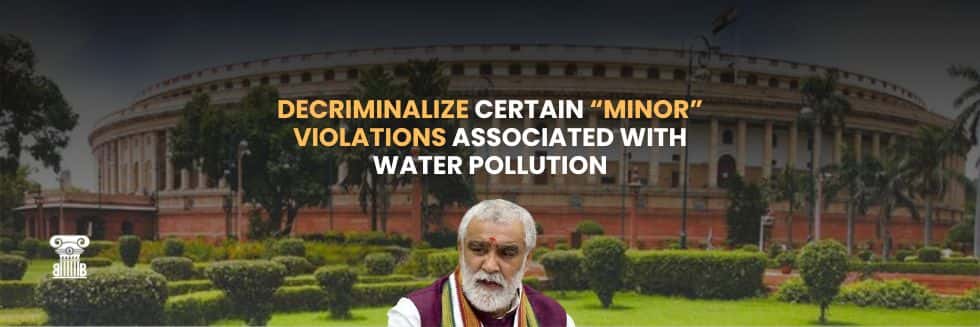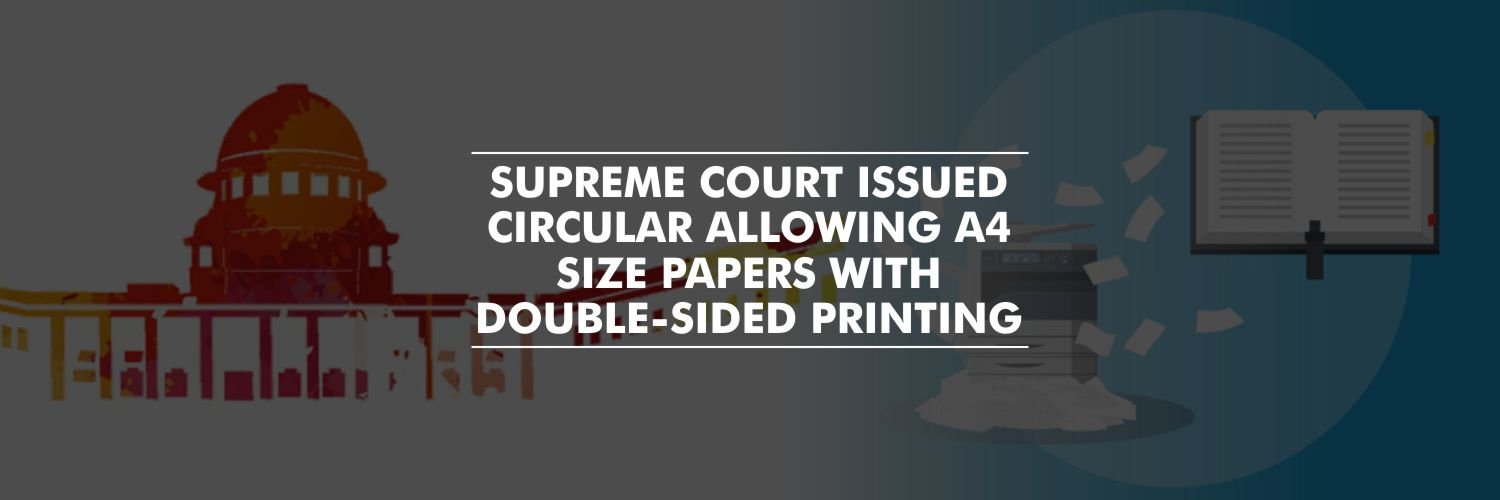Riding on the tide of legislative reform, the Water Pollution Amendment Bill of 2024 surged through Parliament marking a critical shift in environmental governance. Spearheaded by Union Minister Ashwini Kumar Choubey, this bill passed swiftly in both houses and seeks to overhaul the archaic Water (Prevention and Control of Pollution) Act, of 1974. By decriminalizing minor violations and instituting penalties, it promises to usher in a new era of trust-based regulation. Let’s dive deeper into the waves of change set in motion by this landmark legislation.
BACKGROUND:
The Water (Prevention and Control of Pollution) Amendment Bill, 2024 introduced by Union Minister of State for Environment, Forest and Climate Change Ashwini Kumar Choubey was passed in the Rajya Sabha on February 5, 2024, through a voice vote. This bill seeks to amend the Water (Prevention and Control of Pollution) Act, 1974 which established central and state pollution control boards to address water pollution. Notably, the Bill replaces criminal sanctions with penalties for various violations. Initially, its application will be limited to Himachal Pradesh, Rajasthan and union territories with other states having the option to extend its applicability through resolutions. The Lok Sabha also cleared the Bill through a voice vote on February 8, 2024.
MAIN OBJECTIVE:
The proposed amendment to the Water (Prevention and Control of Pollution) Act, 1974 aims to decriminalize certain “minor” violations associated with water pollution opting instead for penalties as sanctions. Additionally, it empowers the central government to prescribe the service conditions for chairpersons of State Pollution Control Boards (SPCBs). Furthermore, the Bill includes provisions to exempt specific categories of industrial units from statutory restrictions.
MAJOR CHANGES:
Key modifications proposed by the Bill purportedly aimed at “enhancing trust-based governance” for facilitating ease of living and doing business are delineated below:
- Consent exemptions for industrial establishment: The Bill empowers the central government in consultation with the CPCB to exempt certain industrial plants from requiring prior consent from the SPCB for establishment. It also authorizes the central government to issue guidelines regarding the grant, refusal or cancellation of such consent. Non-compliance including tampering with monitoring devices will attract penalties ranging from Rs 10,000 to Rs 15 lakh.
- Appointment of State Board Chairman: The Bill mandates the central government to prescribe the nomination process and service conditions for the chairman of SPCBs altering the current state government nomination mechanism.
- Polluting matter discharge: It revises penalties related to the discharge of noxious or polluting substances into water bodies substituting imprisonment with fines ranging from Rs 10,000 to Rs 15 lakh.
- Penalties for other violations: The Bill replaces imprisonment with fines of similar magnitude (Rs 10,000 to Rs 15 lakh) for offences not explicitly penalized under the Act. Failure to pay these penalties may result in imprisonment of up to three years or fines double the imposed penalty amount.
- Adjudication and appeals: Central government-appointed adjudication officers will determine penalties, with appeals directed to the National Green Tribunal. Penalties collected will contribute to the Environment Protection Fund.
- Cognizance of offences: Apart from complaints by regulatory bodies, the Bill allows for cognizance of offences based on complaints by adjudicating officers.
- Government department accountability: Heads of government departments will face penalties equal to one month’s basic salary for departmental violations subject to demonstrating due diligence in prevention.






